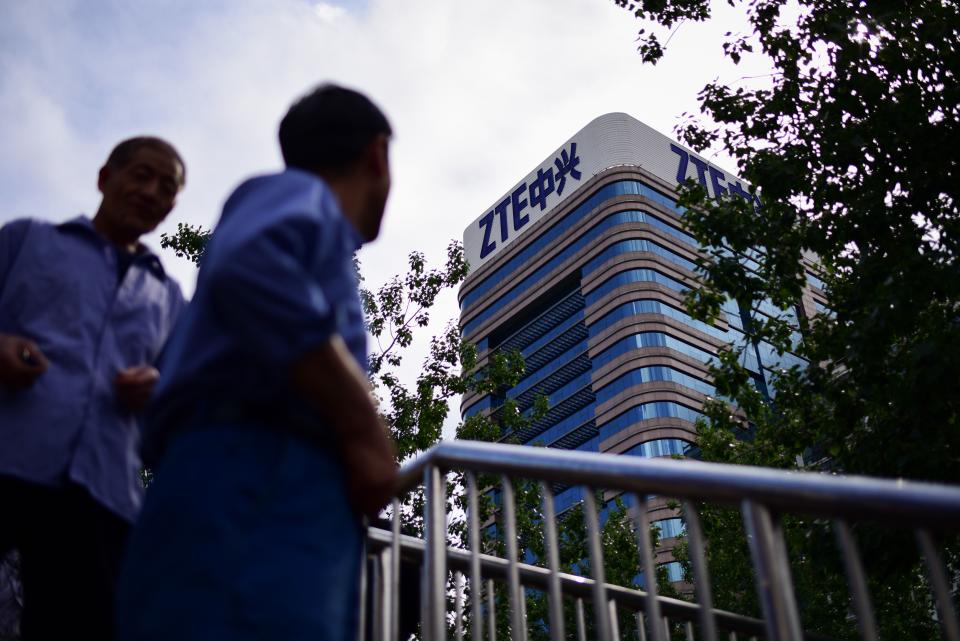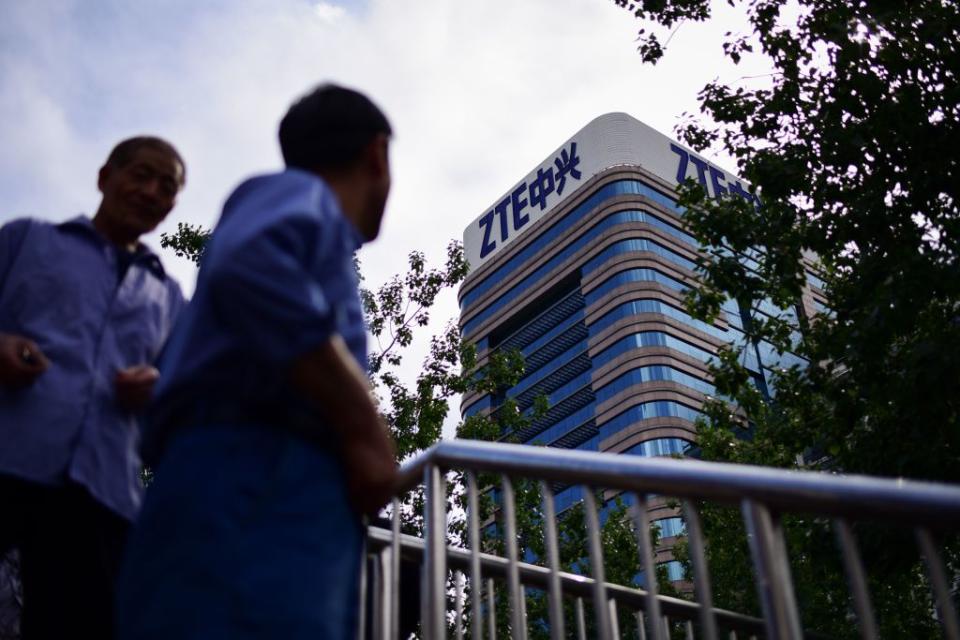ZTE, Trump, and China: Here’s What the Fuss Is All About
The U.S. government’s decision to ban China’s ZTE has been simmering in recent months and is now starting to reach a boil. The issue has made for a rare wedge between President Trump and Republicans congressional leaders. It also has implications not only for trade ties between the U.S. and China, but also for technology companies and national security in both countries.
Here’s some background on the tensions that the ZTE affair is generating.
The trade ban
ZTE is one of China’s leading makers of Android phones and wireless-network equipment. The company had $17 billion in revenue last year and, in March, a market value of $24 billion. That month, the company admitted to illegally exporting technology to Iran and North Korea in violation of U.S. trade sanctions. The U.S. Commerce Department fined the company more than $1 billion. At the time, ZTE vowed to reprimand employees who violated the sanctions.
Instead, the company fired a handful of employees and gave bonuses to others responsible for the violations. In response, the U.S. banned U.S. companies from exporting components necessary to ZTE’s survival. The components include everything from chips to Google’s mobile operating system.
The move was effectively a death sentence for ZTE, which a few weeks later announced it was shutting down. Shortly after, President Trump tweeted he would work with Chinese president Xi Jinping to reverse the ban, since it would lead to “too many jobs in China lost.” ZTE employs 75,000 workers and says it has business operations in more than 160 countries.
President Xi of China, and I, are working together to give massive Chinese phone company, ZTE, a way to get back into business, fast. Too many jobs in China lost. Commerce Department has been instructed to get it done!
— Donald J. Trump (@realDonaldTrump) May 13, 2018
The New Settlement
On June 11, ZTE agreed to a settlement with the U.S. government that imposed heavy penalties: a $1 billion fine, another $400 million set aside in escrow to cover any future violations, and a pledge to replace its board and executive team by mid-July. ZTE must also allow U.S. inspections of its plants and public disclosure of its supply chain.
The agreement will allow ZTE to resume operations and update its financials to reflect the impact that the ban and the fines will have on its earnings. Following ZTE’s confirmation of the settlement, shares in the company resumed trading in Hong Kong and Shenzhen for the first time in two months on June 13.
Once trading resumed, however, the stock plummeted 42% in a single day.
The Political Fallout
Trump’s efforts to reverse the ban haven’t gone over well in Washington. Members of Congress as well as defense officials expressed concern about reversing the ban early on, arguing that ZTE’s practices posed a threat to national security. The resistance included the rare pushback from leaders in Trump’s own party.
Following the White House’s new deal with ZTE, a bipartisan group in Congress quickly moved to reverse it. Republican Senate leaders set up a vote to retroactively reimpose financial penalties and uphold the ban on ZTE selling products to the U.S. government. Commerce Secretary Wilbur Ross and other administration officials lobbied against such a vote.
The Senate plans to fold the provision blocking the deal inside a defense bill that contained other measures supported by the Trump administration, which could prompt the president to sign it into law.
Great news! Our bipartisan amendment restoring penalties on #ZTE is included in the #NDAA bill the Senate will be advancing to later this evening.
— Marco Rubio (@marcorubio) June 11, 2018
"Their technology is a national security threat, according to our defense and law enforcement authorities," New York Sen. Chuck Schumer said of the efforts to block the deal. "Why on earth is the Trump administration considering relaxing penalties on such a bad actor?"
The Spying Game
Another wrinkle in the ZTE affair is the potential for cross-border espionage. In early May, the Pentagon told U.S. military bases to stop selling phones made by ZTE and its Chinese peer Huawei, saying they “may pose an unacceptable risk to personnel, information and mission.” The Pentagon also urged U.S. retail stores against selling the phones as well.
For its part, China wants to wean itself from products and services from U.S. technology companies, citing security threats such as the possibility that Washington could use American technology to spy on China. In December, the Chinese Government Ministry of Industry and Information Technology released a five-year plan to build out its own optical chips industry, while reducing its exposure to foreign firms.
The New York Times has suggested recently that the near collapse of ZTE may be a Sputnik moment for China, in that it’s a wake up call to build out its technological independence. In 1957, the launch of the Sputnik 1 artificial satellite by Russia inspired the U.S. to get serious about its ambitions in space technology.
See original article on Fortune.com
More from Fortune.com


